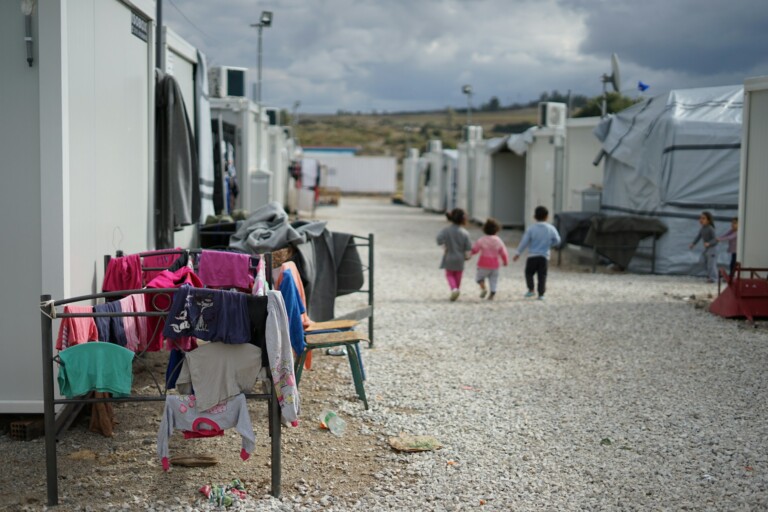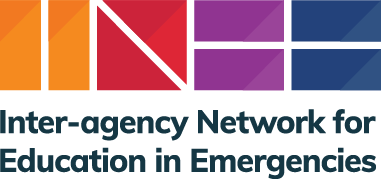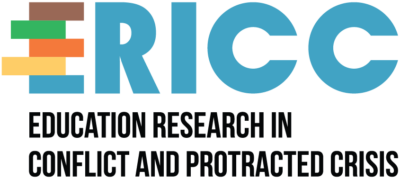EdTech for education in emergencies
BRIDGING THE GLOBAL EVIDENCE GAP

Fast facts
- The challenge
- Our role
- Activities
Sustaining learning in complex, often protracted, emergencies is not simple. Despite critical investment, much remains to be learned about what, when, why, and how to use EdTech effectively when “conventional” schooling is no longer available.
The urgency to build better guidance and insight regarding how technology can best help education in these contexts continues to grow.
There is no critical mass of research focused on technology in Education in Emergencies. However, the Covid-19 highlighted EdTech’s potential in crisis contexts. School closures drove a global shift to tech-enabled home learning, prompting governments and education providers to seek urgent evidence on how best to leverage technology for continuity of learning. To meet this surge in demand, EdTech Hub played a pivotal role, providing timely insights through its Helpdesk, Rapid Evidence Reviews, and Covid-19-specific research studies. Building on this momentum, we aim to produce a better foundation of rigorous and practical research to help improve decision-making on how technology can be used to sustain the continuity of learning for the increasing numbers of children affected by emergencies.
- Conducting implementation research on key evidence gaps in the Middle East and Ukraine.
- Conducting secondary research, including Rapid Evidence Reviews (RERs) on remote learning, EiE, and refugee education.
- Developing a working paper on the cost-effectiveness of EdTech in EiE contexts.
- Working with INEE to create evidence-informed guidance materials for the use of EdTech in education in emergencies.
- Providing on-demand evidence support to key EiE sector decision-makers through the Helpdesk.
Explore more
Regions and countries where we work¹
- Sub-Saharan Africa
- South and Southeast Asia
- Middle East
- Eastern Europe
- Ukraine
- Global
- Adaptive learning in complex emergencies
- Supporting caregivers and teachers in education in emergencies
- Cost-effectiveness in education in emergencies programming
- Integrating mental health and well-being support for children in emergencies
Experts
Partners
- Foreign, Commonwealth & Development Office (FCDO)
- Education Research in Conflict and Protracted Crisis (ERICC)
- Inter-agency Network for Education in Emergencies (INEE)
You can explore all publications on EdTech for Education in Emergencies in the evidence library, or view our curated list below, organised by country and focus area.
Curious about our work? Explore our collection of frequently asked questions, complete with quick and insightful answers. Go to our Q&A section.
About EdTech for education in emergencies ➜
The world is experiencing record population displacement due to escalating conflicts and natural disasters, leaving over 224 million school-age, crisis-affected children in urgent need of educational support.
As crises continue to escalate around the world, it is likely that there will be more and more children for whom conventional education is disrupted by some form of emergency or conflict. Building and applying the evidence base for how technology can help sustain learning for the millions of children affected by crisis is a central part of EdTech Hub and our partners’ shared mission.
Join us in bridging the evidence gap. Read on for resources, research, and tools to support your work.
EdTech Hub’s work ➜
Research shows that gaps in learning, whether short or prolonged, can have a lasting impact on learning outcomes. This was widely documented during the Covid-19 pandemic, when extended school closures led to significant learning losses.
In crisis-affected contexts, where disruptions are frequent, understanding how and when EdTech can support learning is critical. The urgency of today’s challenges makes developing EdTech program design and implementation guidance a priority, even as EdTech Hub continues to generate the evidence needed to inform future decisions about the use of technology for education in emergencies.
[smartslider3 slider=”5″]
Resources by topic
Guidance and minimum standards
February, 2024 │ Review
EdTech for Education in Emergencies: A review of existing guidance and minimum standards
February, 2025 │ Review
EdTech for Education in Emergencies: A Rapid Evidence Review
Refugee education, school-closures, and out of school learners
August, 2024 │ Review
EdTech for Out-of-School Children and Youth: A Rapid Evidence Review for the Southeast Asian Region
March, 2023 │ Report
EdTech Evidence From Covid-19 Response: A thematic review of primary research from Bangladesh, Ghana, Kenya, Pakistan and Sierra Leone
December, 2021 │ Blog
Building forward better in Pakistan: four key things to consider when trying to mainstream lessons learnt about EdTech during school closures
June, 2020 │ RER
Refugee Education: A Rapid Evidence Review
June, 2020 │ Report
Using EdTech in Settings of Fragility, Conflict and Violence: A Curated Resource List
Leveraging low-tech devices and tech
March, 2021 │ Report
Low-Tech Devices and Connectivity for Learning in Lebanon
Examinations in emergency contexts
September, 2022 │ Review
Online Examinations in
Emergency Contexts
Are Proctoring and Other Technologies Feasible in Syria to Facilitate Inclusive School Exams for All
Questions we get asked about EdTech for education in emergencies ➜
What is EdTech, and how can it be used during emergencies?
Educational Technology (EdTech) refers to the use of digital tools and resources to support learning. During emergencies such as conflicts or natural disasters, EdTech can help support continuity of education and learning, when traditional schooling is disrupted. This can include radio-based learning, digital self-study materials, or tablet-based programmes that enable students to continue learning remotely. Learn more about how EdTech was used during the Covid-19 pandemic.
How can EdTech support teachers in emergencies?
EdTech can provide teachers with remote professional development, teaching resources, and peer support networks. Online training modules, interactive learning platforms, and virtual communities of practice help teachers adapt to new teaching methods suited to crisis settings.
If you’re interested in learning more, check out our rapid evidence review on EdTech for Education in Emergencies. It explores EdTech implementations in crisis contexts, including conflict, disasters, and public health emergencies, focusing on primary and secondary learners, their teachers, and caregivers.
Proud to partner with global experts



see all resources on EdTech for education in emergencies
¹Some work may appear in multiple sections and won’t always be tagged by region or country. This is because many projects span different contexts and focus areas. We’ve curated this list to help support a variety of search needs.


